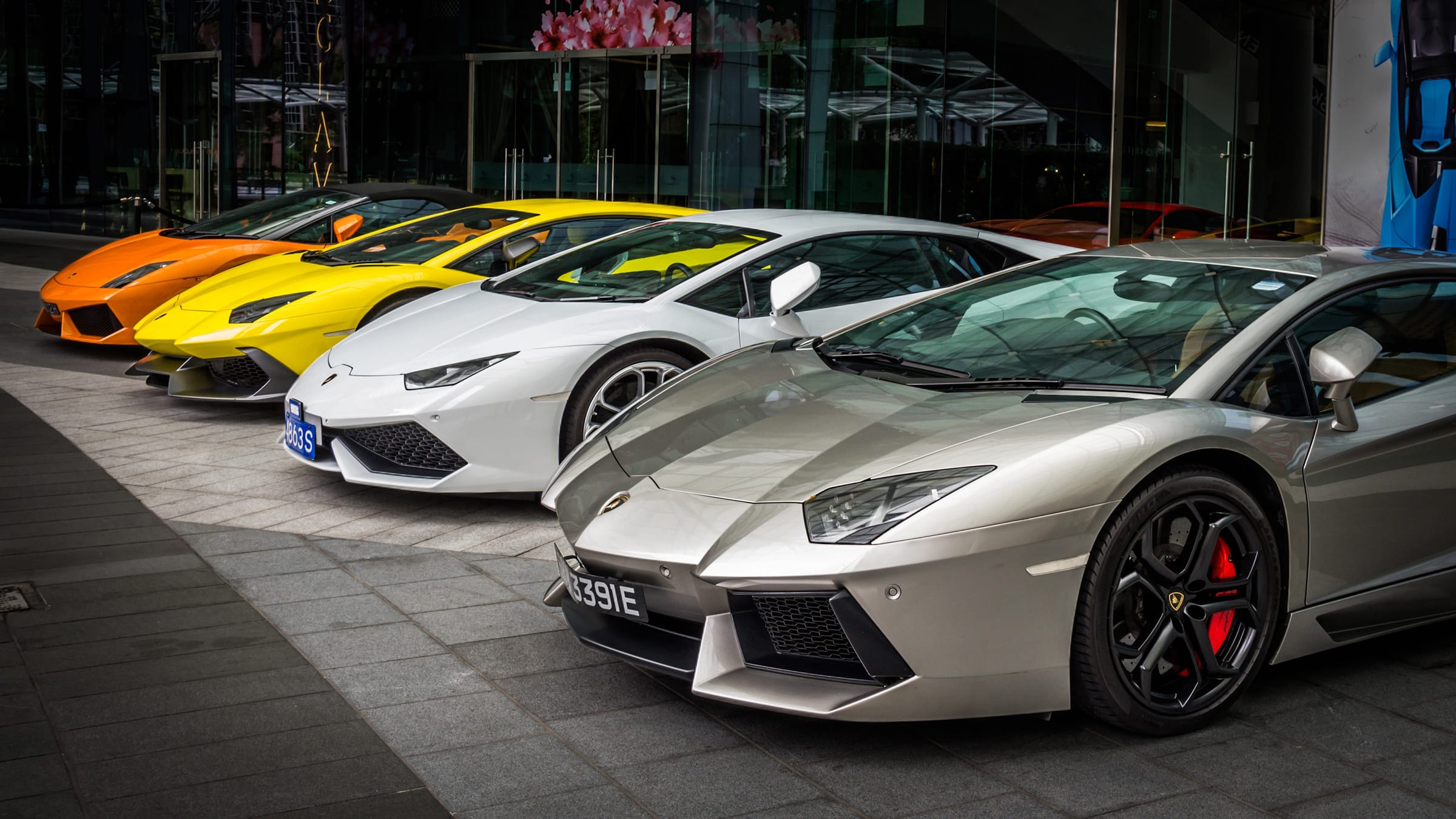I remember when I first heard how much it costs to buy a car in Singapore I was absolutely astounded.With all the import taxes and COE the sum you have to pay for a mid-range hatchback could let you very nearly buy a supercar in Europe.
The thing is, however, that owning a car in Singapore makes very little practical sense for vast majority of people.
Whenever I'm in Poland or when I lived in Dubai, I refuse(d) to commute in any other way than by car. I loathe public transit and, most of the time, it's a useless mode of transport (save for within major European cities) that is worse than driving in every conceivable way.
Plus, with a larger land area, there are just so many places you can travel to by car that are otherwise very poorly accessible by any other means.But in Singapore I don't drive and I never miss having a car.There are few locations on the island that you cannot get to by any other means (and MRT is excellent) - and if you want to, you can always summon Grab to go there every once in awhile. Is that enough to actually justifying car *ownership*?
Outside of the city, the furthest you can reasonably travel is Malaysia. In Europe or America you can do really long, interesting road trips in all directions, visiting other states or countries - but on the Malay Peninsula? If you're really thirsty for a long trip you might try driving to Thailand (though, what for?).
And even if you're such a keen driver then why not simply rent? Just get the car for as long as you really need it. That should be more than enough even if you have family and friends in MY.
Due to the fact that I haven't lived anywhere for very long (at least not in one long stints, as I move around) over the past 12+ years, I always rent. I get the car I want, for as long as I want, hassle free, with full insurance and assistance. Easy.
In Singapore it means shelling out $1500-2000 per month for something decently mid-range. You can rent for days or weeks too. Why lock yourself into a single and exorbitantly expensive vehicle?
Now, one could conceivably make a case for car ownership (even in SG) if you have a family with kids or, perhaps, elderly parents.
That, I admit, is an argument (possibly the only) that I would find reasonable, particularly if you have small children. But even in this scenario, you'd have to ask yourself how often do you really have to drive anywhere, how often couldn't you just make do with a taxi or Grab. Is the kindergarten so far away that you have to get into a car to drop your kid off? Do you, perhaps, live in a secluded area which is far from accessible modes of public transit (like a landed property, which typically are some distance away from the MRT). Can't your kids commute on a school bus?Dense public (and much of private) housing is usually well-connected to the subway which makes moving around within a distance of a few stops rather easy and painless. It's only when you have to go a longer distance that flexibility of having a car really comes into play.
I guess what I'm trying to say is that Singapore as a city is designed in such a way that the most densely populated estates enjoy excellent public transit and it's only when you can afford to spend more on a larger house that you actually end up further away - but it also means you can afford to pay for a private vehicle.On an island with this little space, access to mobility by a car is still very easy with numerous and fairly affordable taxis. For longer periods of time you may also choose to rent - and paying $1500-2000 per month sounds, arguably, like a much better deal than forking a few hundred thousand on your own car, typically paid through lengthy loans.
In effect, then, COE really applies to those who are wealthy enough or who require to cover significant distances on a daily basis for their work (i.e. it makes economic sense for them too).
Just look at what a substantial sum it brings in, too. S$6.5 billion from COE and vehicle taxes this year. That's more than half of all revenue from GST.
COE's main benefit is, of course, reduced congestion on this tiny island. But it has become, in effect, a tax on the wealthy - those who are ready to pay $100,000 just for the right to own a car for 10 years. And all this money lands in the budget, benefiting everyone else.
I think the source of most complaints is the fact that car ownership is still a status symbol and "looks good". Getting on the MRT is not "sexy" enough. But seriously, look beyond that. It's really a consumption tax that allows for billions of dollars to be transferred from those who can and are willing to pay (even willing to bid very, very high), to everybody else.
The results are: more money in the budget + lower traffic and pollution in the city, while everybody else can summon or rent a car for when they really need to.Win-win-win.





